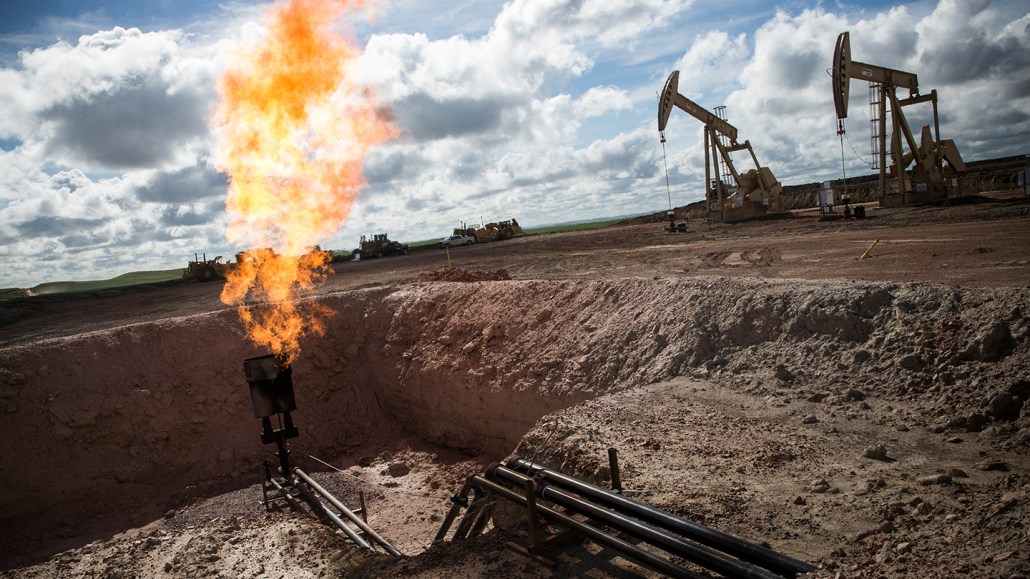‘The New Climate War’ exposes tactics of climate change ‘inactivists’
Climate scientist Michael Mann argues outright denialism has morphed into inactivism

Outright denial of climate change is giving way to subtler efforts to delay action on reducing fossil fuel emissions, argues climate scientist Michael Mann. One tactic, he says, is to shift responsibility away from fossil fuel companies (a gas flare at a North Dakota oil well site, shown) and to individuals.
Andrew Burton/Getty Images







